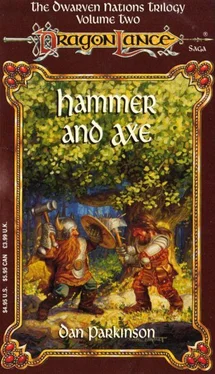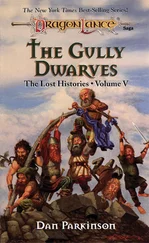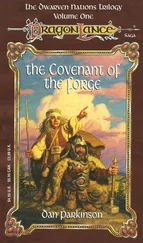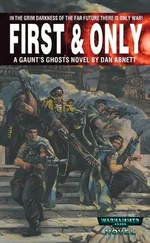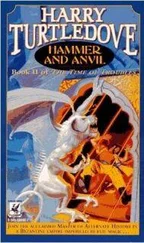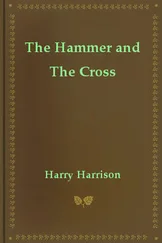Behind him, high on a mountain shoulder, Willen Ironmaul glanced back, then turned to the First of the Ten. “When we return, Cable,” he said, “go and find the trade warden. Tell him those fields of grain he has been coveting—in the Cobar lands north of Ergoth—may yield profitable trade for us now that we have a grateful Cobar to speak for us there.”
He flicked his reins, heading for home, and muttering to himself. “The gratitude of a former enemy should be worth a dozen tokens in striking a trade agreement.” Then the chief of the Hylar shook his head, sighing.
More and more, he thought, he was beginning to think like Olim Goldbuckle.
In a furniture shop in Theibardin, a burly shopkeeper discovered that a trade had been made. A good pair of calipers was missing from his shop, and in the tool’s place had been left a polished oval gemstone that tasted terrible and had a disconcerting habit of changing colors. With an oath, the shopkeeper flung the thing out of his shop. “I knew it,” he rumbled. “I knew that kender got away with something.”
In the concourse off Fifth Road, a passing Klar farmer noticed the stone, picked it up, and dropped it into his belt-pouch. Later, in the worm warren, he studied it, holding it this way and that in the light, watching it turn from red to white to black, with myriad shades between.
Had he been Daewar, he might have kept it as an oddity for display. But as a Klar, he found no use for it. After looking it over, he cast it aside.
For a time, the gem lay half buried in a pile of crushed stone and slops, then was carted, rubble, slops, and all to the worm troughs, where the tractor worms were fed.
The Stone of Threes of Kal-Thax, which was to have been the foundation of the Seventh Tower of High Sorcery, was never seen again. It was noted, though, that one particular lot of worm-web consigned to the weavers of spunstone had a tendency to change color at odd intervals.
